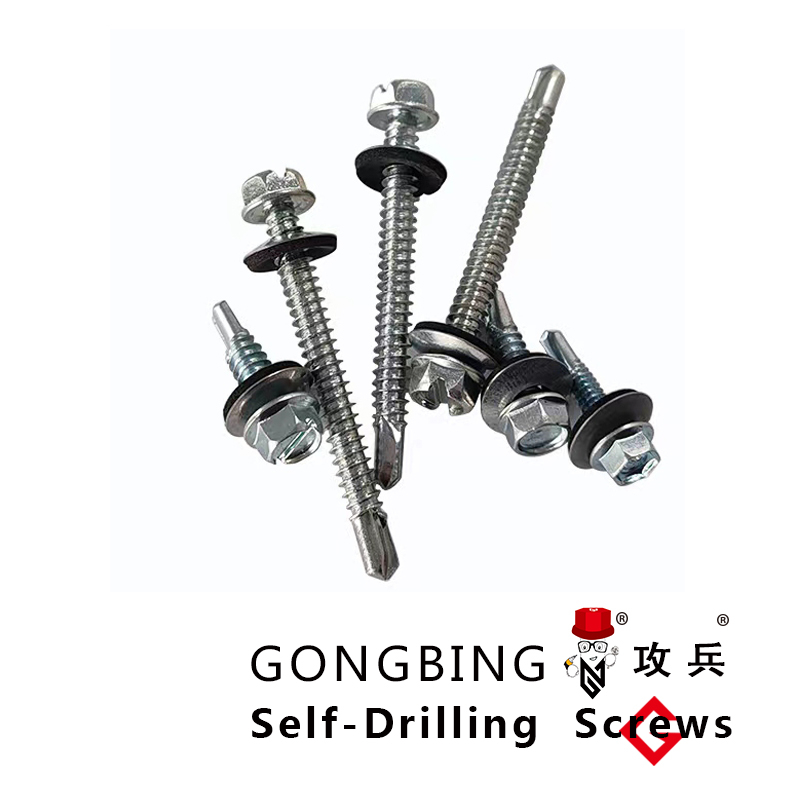self drilling screw for wood
Self-Drilling Screws for Wood Enhancing Efficiency and Performance
In the world of construction and woodworking, the choice of fasteners is crucial for both the integrity and efficiency of the project. Among the myriad of options available, self-drilling screws for wood have gained popularity due to their unique design and performance advantages. This article delves into the features, benefits, and applications of self-drilling screws, making a case for their use in various woodworking projects.
Understanding Self-Drilling Screws
Self-drilling screws, also known as self-tapping screws, are specialized fasteners engineered to create their own hole as they are driven into materials. Unlike traditional screws that require pre-drilled pilot holes, self-drilling screws come equipped with a drill point at the tip. This innovative design allows them to penetrate wood and other materials efficiently, eliminating the need for additional drilling tools.
Key Features
1. Drill Point Design The most distinguishing feature of self-drilling screws is their drill point. This point is typically hardened, allowing it to penetrate the wood quickly and reduce the overall time spent on a project.
2. Variety of Coatings Many self-drilling screws come with coatings that resist corrosion and enhance durability. Zinc plating, galvanization, and other protective finishes help extend the lifespan of the screws, especially in outdoor applications.
3. Thread Design The threading on self-drilling screws is designed to provide a strong grip in wood without splitting the material. The threads may vary in design and depth, depending on the specific application or type of wood being used.
4. Size Options Self-drilling screws are available in various sizes and lengths, making it easier for craftsmen to select the right screw for their specific projects.
Advantages of Self-Drilling Screws
1. Time-Saving The ability to drill and fasten in one action significantly reduces the time needed to complete tasks. This efficiency is especially valuable in larger projects where time management is critical.
self drilling screw for wood

2. Consistency and Precision Self-drilling screws provide consistent penetration and a secure hold, ensuring a reliable and durable assembly. This feature is critical in applications where structural integrity is paramount, such as in furniture making or home construction.
3. Reduced Risk of Splitting Traditional wood screws can sometimes cause the wood to split if not carefully pre-drilled. Self-drilling screws minimize this risk, offering peace of mind to woodworkers, especially when working with harder woods or in intricate designs.
4. Ease of Use The straightforward application process makes self-drilling screws accessible for both professionals and DIY enthusiasts. Even those with limited woodworking experience can achieve effective results.
Applications
Self-drilling screws are used in a variety of woodworking applications, including
- Furniture Construction From assembling cabinets to constructing tables, self-drilling screws hold various components together securely.
- Decking and Outdoor Projects Their corrosion-resistant properties make self-drilling screws ideal for outdoor structures such as decks, fences, and pergolas where exposure to moisture is a concern.
- Framing and Structural Work Many builders prefer self-drilling screws for framing due to their strength and reliability in various wood types.
- DIY Projects Hobbyists and DIY enthusiasts benefit from the ease of use and efficiency that self-drilling screws offer, making them perfect for crafting and home improvement projects.
Conclusion
Self-drilling screws for wood represent a significant advancement in fastening technology, combining efficiency with effectiveness. Their unique design features and advantages make them an invaluable tool for professionals and amateurs alike. By choosing self-drilling screws, woodworkers can ensure secure, durable, and visually appealing results in their projects, ultimately enhancing both productivity and craftsmanship.
-
Weatherproof Plastic Expansion Anchors for OutdoorNewsJun.06,2025
-
Sustainability in the Supply Chain: Eco-Friendly TEK Screws ProductionNewsJun.06,2025
-
Load-Bearing Capacity of External Insulation FixingsNewsJun.06,2025
-
Double Head Bolts: Enhancing Efficiency in Industrial MachineryNewsJun.06,2025
-
Corrosion Resistance in Chipboard Screws: Coatings for Wholesale DurabilityNewsJun.06,2025
-
Butterfly Toggle Bolts : Enhancing Structural ResilienceNewsJun.06,2025
